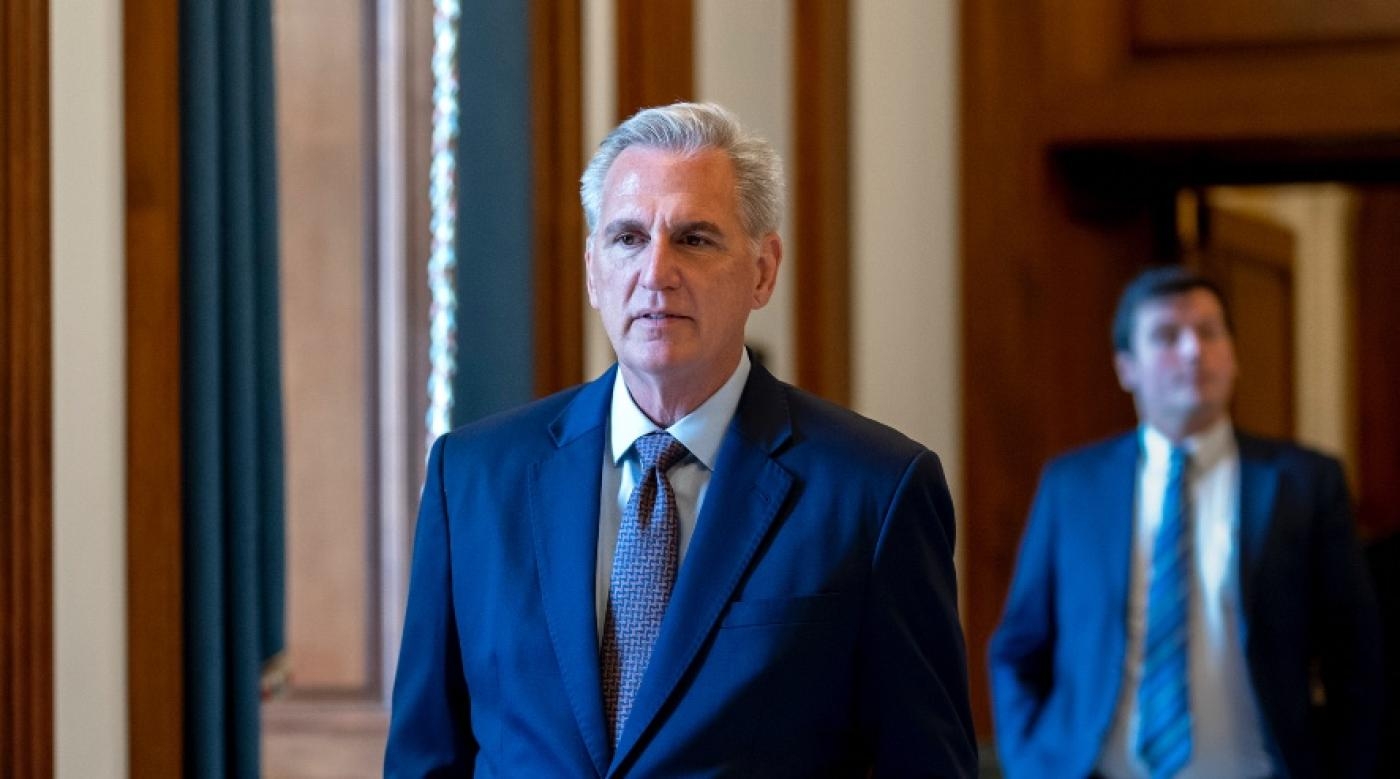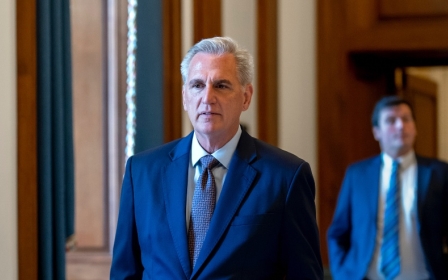US: McCarthy vows to invite Netanyahu to Washington if Biden doesn't

Kevin McCarthy, the US speaker of the House of Representatives, has vowed to bring Israeli Prime Minister Benjamin Netanyahu to the US if President Joe Biden does not offer an invitation.
In an interview with Israel’s Hayom on Monday, the Republican speaker said “it’s been too long” since Netanyahu received a White House invite, as he offered an ultimatum to Biden.
"If that (a White House visit) doesn’t happen, I’ll invite the prime minister to come meet with the House," McCarthy said.
Israel is the US’s closest Middle East ally, but ties between Netanyahu and the Biden administration have come under pressure since Netanyahu returned to power last year as head of a coalition with far-right and ultranationalist allies.
US officials warned Netanyahu earlier this year about giving Israeli Finance Minister Bezalel Smotrich control of civilian authorities in the occupied West Bank, equating the move with annexation.
New MEE newsletter: Jerusalem Dispatch
Sign up to get the latest insights and analysis on Israel-Palestine, alongside Turkey Unpacked and other MEE newsletters
In February, the US made a rare decision to support a motion at the UN Security Council condemning Israel’s plan to expand settlements in the occupied Palestinian territories.
Ties between Biden and Netanyahu go back decades to the US leader’s days as a senator. Although the two are on opposite ends of the political spectrum, they have had a warm relationship, with Biden reportedly once telling Netanyahu: "Bibi I don't agree with a damn thing you say, but I love you.”
But developments in Israel and the occupied West Bank have put those relations on a bumpy road. Earlier this year, CIA director William Burns warned that violence in the region was beginning to resemble the Second Intifada.
Israel’s domestic political troubles have also spilled over into the bilateral relationship. In March, mass protests erupted in Israel over Netanyahu’s plans to push through a contentious judicial overhaul.
Biden has been under pressure from lawmakers in his own party - mainly pro-Israel Democrats - to take a stricter approach to the reforms. In March, a group of nearly 100 Democratic lawmakers warned Biden that the actions of Israel's far-right government were undermining the US-Israel relationship.
Sixteen Jewish House Democrats also sent a letter directly to Netanyahu, expressing "profound concern" about the judicial overhaul.
Biden later issued a rare rebuke saying he was “concerned” about the move. In March, Netanyahu said he would delay the overhaul and seek a compromise with political opponents in order to “avoid civil war”.
Military aid 'safe'
McCarthy was elected speaker in January after Republicans flipped control of the House in the 2022 mid-term elections.
A strong backer of Israel, he told Hayom that US military aid to the country was “safe”, adding, “you can't predict future congresses. That's where you always work in everything”.
Criticism of Israel has gained traction in some progressive corners of Congress.
Before his election, McCarthy told the Republican Jewish Committee that he would remove Democrat Ilhan Omar from the House Foreign Affairs Committee over her criticism of Israel, saying: “I remember what she said about me. I remember what she said about Israel." Omar was removed in February.
The Republican speaker also drew a parallel between his own frosty ties to Biden and the cold shoulder the White House has cast Netanyahu.
“President Biden hasn’t talked to me about the debt ceiling for the last 80 some days, so I think he, the prime minister, might be in good company if he treats me the same way,” he said.
Speakers of the House often invite foreign heads of state to address Congress, and Netanyahu has a history of appearing before US lawmakers when ties to former American leaders have been tested.
In a 2015 address to Congress, he issued biting criticism of the Iran nuclear deal. That speech further strained ties with the former Obama administration.
Middle East Eye delivers independent and unrivalled coverage and analysis of the Middle East, North Africa and beyond. To learn more about republishing this content and the associated fees, please fill out this form. More about MEE can be found here.





